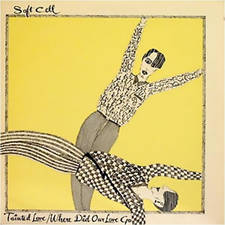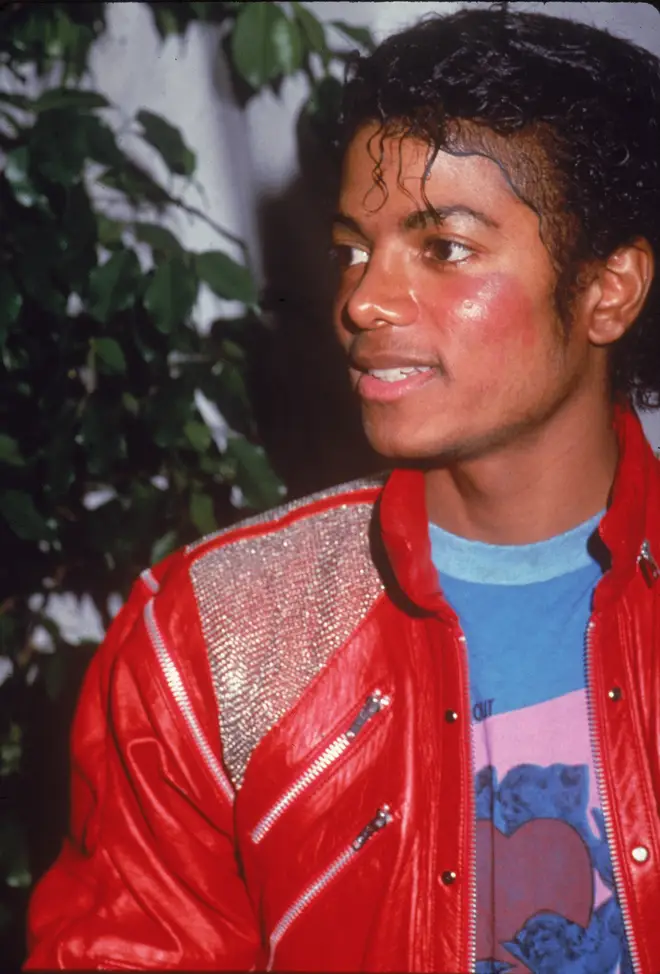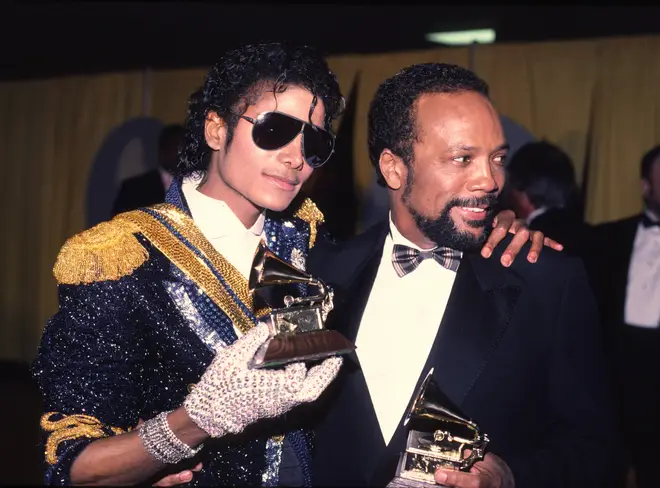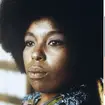The Story of... 'Billie Jean' by Michael Jackson
13 February 2024, 15:15
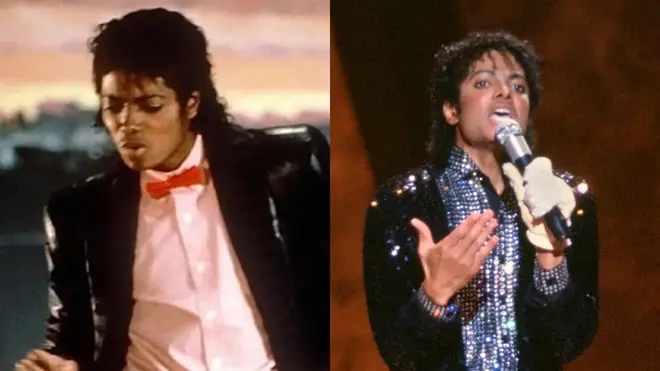
Unravelling the enigmatic allure of Michael Jackson's iconic hit, 'Billie Jean', unveils a narrative as intriguing as the song's infectious rhythm.
Listen to this article
In the history of pop music history, few tracks possess the timeless magnetism and cultural impact of this 1983 masterpiece.
Yet, beyond its catchy beat and mesmerizing melody lies a tale shrouded in speculation and artistic genius. From its cryptic lyrics to its groundbreaking production, the story behind 'Billie Jean' not only epitomizes Michael Jackson's unparalleled musical prowess but also reflects the complexities of fame, love, and the human condition.
Delving into the genesis of this legendary track offers a glimpse into the mind of a musical maestro at the height of his powers and the societal backdrop that inspired one of the most enduring classics of all time.
-
Who wrote 'Billie Jean'?
Michael Jackson in 1983. Picture: Getty 'Billie Jean' was written and composed by Michael Jackson himself.
It was released as a single on January 2, 1983, as part of his sixth studio album, Thriller.
-
Who produced the song?
Michael Jackson with Quincy Jones. Picture: Getty The creation of 'Billie Jean' involved a meticulous process that showcased Michael Jackson's innovative approach to music production.
Jackson worked closely with producer Quincy Jones to craft the song's distinctive sound.
The iconic bassline, played by Louis Johnson of the Brothers Johnson, became a defining element of the track.
Jackson's attention to detail extended to the song's arrangement, with each instrument meticulously layered to create a rich and dynamic sonic landscape.
In addition to Michael Jackson's vocals and the bassline played by Louis Johnson, the personnel on 'Billie Jean' included Greg Phillinganes on the synthesizer bass, David Williams on rhythm guitar, Ndugu Chancler on drums, Michael Boddicker on synthesizer effects and Paulinho da Costa on percussion.
As for the production, 'Billie Jean' was co-produced by Quincy Jones and Michael Jackson. Together, they masterfully orchestrated the recording sessions, drawing upon their collective expertise to shape the song into the timeless masterpiece it became.
The collaboration between Jackson and Jones on 'Billie Jean' exemplifies the synergy between two musical visionaries at the height of their creative powers.
Jones had Jackson record his vocal overdubs by singing through a six-foot cardboard tube. Jackson's lead vocal was executed in a single take, with him undergoing vocal training every morning during the song's production.
Jazz saxophonist Tom Scott contributed on the lyricon, an electronic wind instrument. Bassist Louis Johnson tried out his part on all of his bass guitars before Jackson settled on a Yamaha bass.
Engineer Bruce Swedien underwent an unusual process with the song, mixing it a total of 91 times, a departure from his usual practice of just one mix per song. As the mixes progressed, they became increasingly unsatisfactory, prompting Jones to request Swedien to revisit the second mix, which turned out to be significantly better.
This second mix ultimately became the final version. At Jones's direction to craft a drum sound with a distinctive "sonic personality," Swedien devised a unique setup for the drum kit, including placing a flat piece of wood between the snare and hi-hat.
Reflecting on the process, Swedien noted: "There aren't many pieces of music where you can hear the first three or four notes of the drums, and immediately tell what the piece of music is. But I think that is the case with 'Billie Jean'—and that I attribute to sonic personality."
-
What was the song about and what inspired it?

Michael Jackson's 60th birthday: Myleene Klass at the On the Wall exhibition at the NPG
'Billie Jean' is a song by Michael Jackson that delves into themes of suspicion, fame, and the perils of stardom. The song tells the story of a woman named Billie Jean who claims that the narrator is the father of her child.
Despite his denials, she continues to insist on his responsibility, causing turmoil in his life.
The inspiration for 'Billie Jean' reportedly came from real-life experiences Michael Jackson had encountered, including encounters with obsessive fans and false paternity claims.
- Michael Jackson’s Super Bowl performance: A cultural phenomenon remembered
- The Story of… ‘Thriller’ by Michael Jackson
Jackson stated that 'Billie Jean' drew inspiration from encounters with groupies he and his brothers encountered during their time performing as the Jackson 5. These groupies would linger around backstage doors, forming relationships with any band that came to town.
According to Jackson's biographer J Randy Taraborrelli, the genesis of 'Billie Jean' stemmed from letters Jackson received in 1981 from a woman asserting that he was the father of one of her twins.
Despite never meeting the woman, Jackson regularly received such claims and ignored them. However, she persisted, professing her love and desire to be with him, and questioning how he could ignore his own flesh and blood. These letters troubled Jackson to the point of causing nightmares.
The situation escalated when Jackson received a parcel containing a photo of the fan, a gun, and a letter instructing him to die at a specific time. The fan planned to do the same after killing "their" baby, so they could reunite in the "next life". Subsequently, the Jacksons learned that the fan had been admitted to a psychiatric hospital.
Michael later said in Moonwalk: "There never was a real Billie Jean. The girl in the song is a composite of people my brothers have been plagued with over the years. I could never understand how these girls could say they were carrying someone's child when it wasn't true."
Jones proposed altering the title to 'Not My Lover', concerned that listeners might associate the song with the tennis player Billie Jean King. Jackson objected to the change, insisting that the original title remain unchanged.
Additionally, he requested co-producing credits for the track, feeling that the final version closely resembled his initial demo, and sought additional royalties. However, Jones declined both requests, leading to a disagreement between the two that lasted for several days.
-
When did Michael Jackson debut 'Billie Jean'?

Michael Jackson - Billie Jean (Motown 25 Performance) (Remastered)
Michael Jackson debuted 'Billie Jean' during the television special Motown 25: Yesterday, Today, Forever, which aired on NBC on March 25, 1983.
This performance is particularly famous for Jackson's introduction of the moonwalk dance move, which became one of his signature moves.
The special celebrated the 25th anniversary of Motown Records and featured various performances by artists associated with the label.
Jackson's electrifying performance of 'Billie Jean' at Motown 25 is considered a landmark moment in music history.
-
Who directed the famous music video?

Michael Jackson - Billie Jean (Official Video)
The famous music video for 'Billie Jean' was directed by Steve Barron. It was one of the most iconic music videos of its time and played a significant role in popularizing the medium as an art form.
- Michael Jackson's best albums ever, ranked in order of greatness
- The real reason behind why Michael Jackson wore one iconic white glove
- The Story of... 'Earth Song' by Michael Jackson
The video was shot in early 1983 and employed groundbreaking techniques for its time. One of the most notable aspects of the video is its use of light-up paving stones, which Jackson steps on during the performance segments. These illuminated tiles were custom-made for the video and added a visually stunning element to the choreography.
The video also utilized innovative editing techniques, including rapid cuts and transitions, to create a dynamic and engaging visual experience. Barron and his team worked closely with Jackson to capture his dynamic stage presence and showcase his dance moves in a way that was both captivating and stylish.
'Billie Jean' music video set new standards for music video production and helped establish Michael Jackson as a visionary artist in the medium.
-
How did it perform in the charts?
'Billie Jean' performed exceptionally well in the charts, achieving widespread commercial success around the world.
Upon its release, the song topped the charts in numerous countries, including the United States, where it reached number one on the Billboard Hot 100 chart. It also reached the top spot on charts in several other countries, including the UK, Canada, Australia, and many others.
The success of 'Billie Jean' was not limited to just its initial release. The song has remained popular over the years and has been re-released multiple times, often charting again in various countries.
Its enduring popularity and cultural impact have solidified its status as one of Michael Jackson's most iconic and beloved songs.
